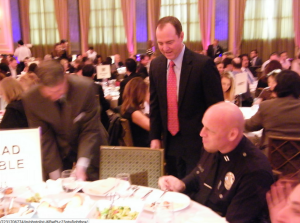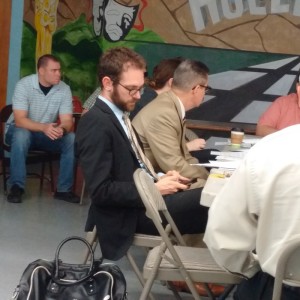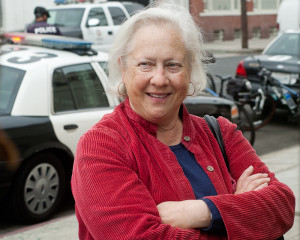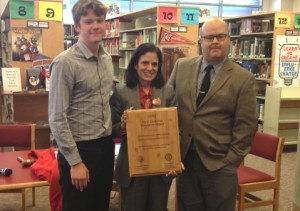
Image of Judge O’Connell in Burbank seems to me to be a public record in California since I got it from the website of the California Judiciary.

Image of Judge O’Connell in Burbank seems to me to be a public record in California since I got it from the website of the California Judiciary.
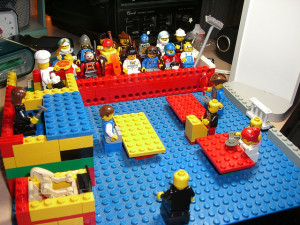
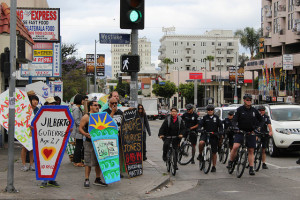
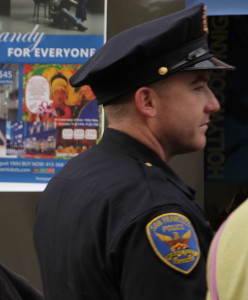
Anyway, on December 21, it occurred to me to make experimental requests for innocuous records to various police departments around the state and then, depending on the results, write to the Los Angeles Police Commission about how other cities around California are, somehow, able to abide by the law. I abandoned that aspect of the plan because, as fate would have it, the very next day a bunch of people sued the LAPD over their flouting of the Public Records Act, obviating the need for any letters from me. But the requests were still out there, so I let them ride.
Berkeley and Long Beach still have failed to acknowledge my requests, even though it’s been 24 days since I sent them. This is in spite of the fact that Berkeley has a city-wide guide to CPRA requests and a far-reaching open government ordinance. The difference between Berkeley PD’s nonresponsiveness and the LAPD’s is that Berkeley has an administrative procedure to encourage city departments to follow the law whereas Los Angeles has nothing of the sort. I’m not going to go that route because I don’t have time, but it’s nice to know it’s there. I don’t know exactly what’s up with Long Beach, but have no plans to press them.
However, the City and County of San Francisco, which also has a sunshine ordinance (the League of Women Voters thinks it was the first such municipal statute), followed the law scrupulously (with one minor lapse). I asked for the last 100 emails between the SFPD and the Union Square BID. And here is what they sent. They didn’t supply them in the native format I requested, which they’re required to do by law, but even here they did better than the LAPD. I’ll describe the interesting formatting compromise they (unilaterally) made after the break. Again, LAPD and the rest of the City of Los Angeles have a lesson they could learn from this.
Continue reading San Francisco Police Department Fulfills Experimental CPRA Request in 23 Days (!) and Provides Emails in an Actually Almost Usable Format

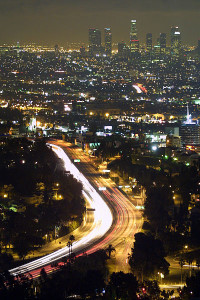
The careful reader will note that the HPOA continues to violate the plain language of the California Public Records Act by converting the original MS Word documents into PDFs before handing them over. In fact, the metadata suggests that it was Joe Mariani who was personally responsible for this outlawry, or at least it was probably done on his computer. Joe, you don’t have to follow orders that require you to break the law, you know. You can just refuse. In fact, the HPOA’s own whistleblower policy encourages you “to report any action or suspected action taken within the Corporation that is illegal, fraudulent or in violation of any adopted policy of the Corporation.” Come on, Joe! Be a mensch, drop a dime!
Continue reading Hundreds of Newly Obtained Documents: CHC and HPOA Board Minutes 2007-2015 and Joint Security Committee Minutes 2008-2015
![Assistant Chief Jorge Villegas, LAPD: "As you know [homelessness] is an extremely complex issue to address. It is not as simple as simply making an arrest. As you know, we cannot arrest [our] way out of this complex social issue."](https://michaelkohlhaas.org/wp-content/uploads/2016/01/Villegas-DC.jpg)

However, there’s also been some action in the LA Catholic Worker/LACAN v. City of LA/CCEA case. You may recall that the plaintiffs called for a hearing on January 11, 2016 over a motion to compel the City of Los Angeles to stop being so damned recalcitrant about handing over discovery material, and everybody seems super-tense about everything and mad at one another in a way that one doesn’t usually see with actual professional lawyers. Anyway, yesterday the plaintiffs filed a supplemental memorandum of law in support of their motion to compel, which makes for some interesting reading in the run-up to the hearing on the 11th.
TL;DR is that the plaintiffs accuse the City of LA of abusing the rule requiring parties to “meet and confer” over discovery matters by providing irrelevant material and so on in order to run out the clock on discovery. I’m convinced by their arguments, but obviously I’m biased. There’s also a hyper-meta discussion on whether the fact that an attorney directs the discovery process makes the documents used to coordinate the process into privileged attorney work-product. I’m sure I missed all the fine points, but I’m definitely convinced. These people will claim privilege for anything. Shameless. Find curated selections from the pleading after the break.
Continue reading Quick Updates on Two Federal Lawsuits
